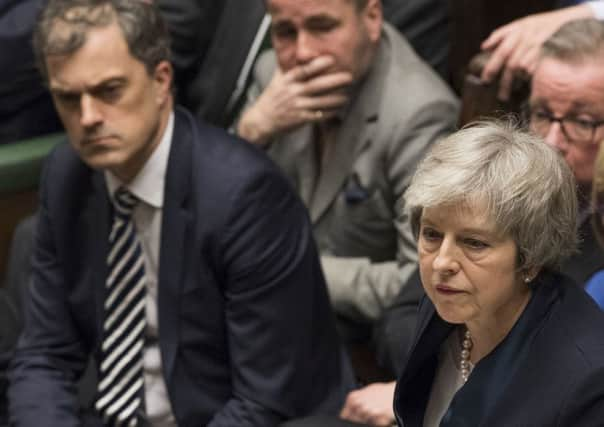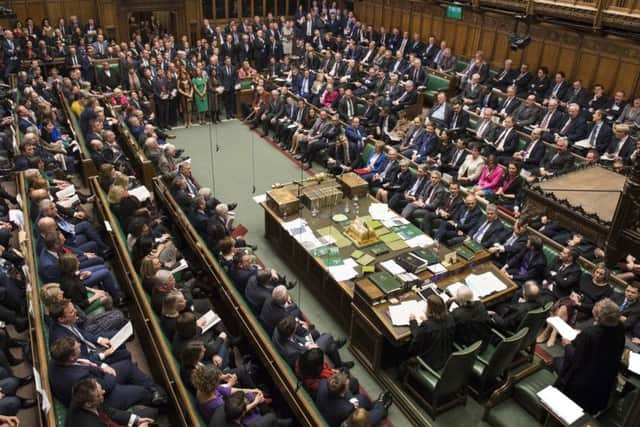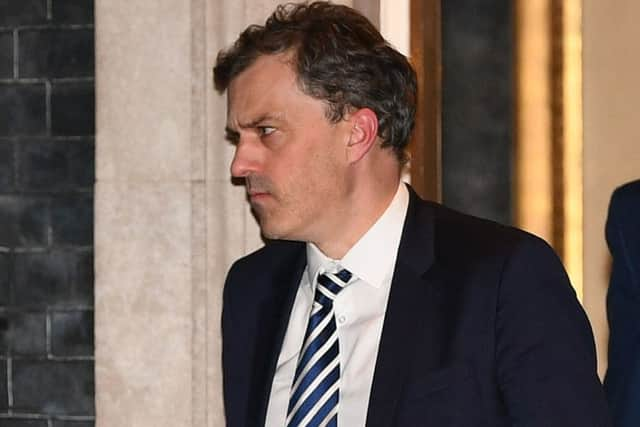Ben Lowry: Tory chief whip Julian Smith spoke to the prime minister, perhaps to give her the result, and she stayed poker faced


Beneath the galleries, in the chamber itself, there was not enough room for all the MPs who wanted to get into it to do so. They crowded around the benches and speaker’s chair and main entrance door, to await the announcement of the result.
After the Speaker, John Bercow, ordered the division doors to be locked, and as the votes were in the final stages of being tallied, the Conservative chief whip Julian Smith bent down to speak to Theresa May.
Advertisement
Hide AdAdvertisement
Hide AdWith his head so close to the prime minister that presumably not even the ministers right beside them could have heard what he was saying, and no lip reader from afar could have ascertained their conversation, Mr Smith said something to Mrs May.


Amid the noise and chatter and high sense of expectation across the chamber and galleries, a rumour swept the public seating upstairs that the vote had been quite close.
This appeared to fit with a comment to the News Letter by one MP earlier yesterday, who said that there was speculation that the scale of the possible government loss was being talked up in advance so that a defeat by, say, 60 or 80 votes would then seem not so bad, and appear almost like a victory of sorts.
After Mr Smith spoke to the PM, she was poker faced and betrayed no emotion at all.
Advertisement
Hide AdAdvertisement
Hide AdPerhaps her speech, much praised by many observers, had caused some backbench Tories to pull back from the brink and support her Brexit plan?


Then, to gasps, the result was read out: 202 votes for the government’s Brexit Withdrawal Agreement, 432 votes against.
A disastrous defeat by a margin of 230 votes, almost exactly the 228 majority that some political analysts had predicted earlier this month.
Mr Smith, it transpired, had been giving the PM her first concrete indication that she had suffered one of the greatest parliamentary defeats in modern history.